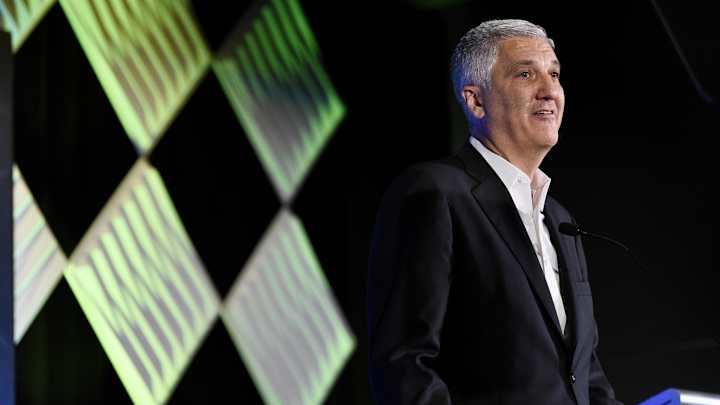Cal Football: The Pac-12 Ponders Its Next Move; Merging with the Big 12 Is Not the Answer

New Pac-12 commissioner George Kliavkoff met Tuesday with Bob Bowlsby, his Big 12 counterpart, to discuss ways the two conference might help each other in the wake of Texas and Oklahoma announcing plans to bolt the Big 12 for the Southeastern Conference.
No word still on what — if anything — was resolved in their meeting.
But it seems clear Kliavkoff will move carefully on all options, and not respond out of a sense of panic.
It also seems far more likely than the two leagues might work out some sort of scheduling arrangement to create high-profile non-conference games than to merge as full-time conference partners.
Pac-12 football has issues:
Performance issues, including a national championship drought dating back to 2004 and only two representatives in the College Football Playoff’s first seven years.
Reputation issues, fallout from the performance shortcomings, that impact everything from national rankings, TV dialogue and, most importantly, recruiting.
Is expansion the answer?
"I think, over time, the dominoes will start falling as a result of the move by Texas and Oklahoma," Kliavkoff told ESPN. "And we're not determined that we need to expand in order to thrive; we can thrive at 12. We don't understand the paradigm that if someone else has 16, you need to have 16. It just doesn't make sense.”
On one level, adding schools merely means a smaller share of the TV revenue for each. But Pac-12 presidents are not likely to welcome new members who don’t meet their academic criteria.
Washington State president Kirk Schultz , in an interview with Jon Wilner of the Mercury News, said, “If we add teams just to try to keep up with somebody else but those teams don’t grow our revenue base, do we really need to add them?”
Schultz is one of three presidents in the Pac-12 CEO Group that helps develop the conference agenda, and he also represents the conference on the College Football Playoff’s Board of Managers.
He told Wilner he has had recent conversations with his counterparts in the Pac-12 and around the country, and the mood has softened a bit since Texas and Oklahoma first delivered their blockbuster news.
“I sensed that in the aftermath of the announcement, there was some panic,’’ he said. “But I don’t think that’s the case any longer.
“I have talked to presidents around the country, and what I’ve found is that people are taking a step back and taking a deep breath. They’re saying, ‘Let’s not rush into it and make a hasty judgment.’
“Nobody is on a deadline. At the same time, we don’t want to have our head in the sand and just see where everything is one year later and hope it worked out for the best.”
Addressing the academic component, Schultz said, “People are saying they like the affiliation that we all have geographically and from the standpoint of being research institutions. All the conversations I’ve had have been really positive, that this is a good footprint. But we need to ask ourselves where we’ll be as a conference in five years.”
The question remains how much a merger with the Big 12 would even benefit the Pac-12. Kansas would bring an elite basketball program, but would add nothing to football.
And without Texas or Oklahoma, the Big 12 doesn’t bring television markets substantial enough to leverage a better media rights deal. And it’s imperative that the Pac-12 closes the financial gap with teams from the SEC and Big Ten, whose TV deals pay them millions more each year.
In terms of a potential merger, at this point the Big 12 needs the Pac-12 more than the other way around.
Kliavkoff needs needs to be smart and decisive while finding creative solutions for the Pac-12’s problems. But a merger with the flailing Big 12 is not the answer.
Cover photo of Pac-12 commission George Kliavkoff by Kelvin Kuo, USA Today
Follow Jeff Faraudo of Cal Sports Report on Twitter: @jefffaraudo

Jeff Faraudo was a sports writer for Bay Area daily newspapers since he was 17 years old, and was the Oakland Tribune's Cal beat writer for 24 years. He covered eight Final Fours, four NBA Finals and four Summer Olympics.